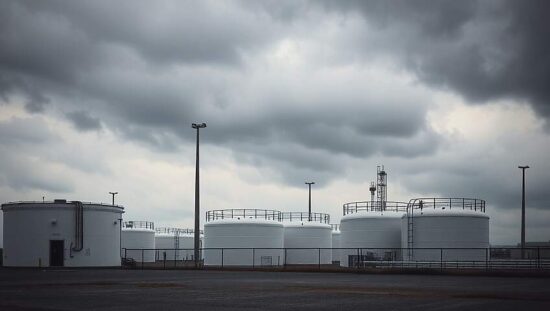The head of German energy giant RWE, Markus Krebber, is advocating for the establishment of a strategic natural gas reserve, mirroring Germany’s existing national petroleum reserve. In an interview with “Focus” magazine, Krebber emphasized the critical need for bolstered energy security, arguing that Germany’s supply chain should not be operating precariously close to failure.
Krebber highlighted the potential for disruptions, referencing the possibility of technical issues at import terminals or along pipelines originating from Norway. He proposed that the German government initiate a regular natural gas supply report, a standard practice for electricity, to proactively assess vulnerabilities. The suggestion of a strategic reserve aims to buffer against unforeseen events and enhance national resilience during periods of high demand or geopolitical instability.
While current German natural gas storage facilities are approximately 75% full, with projections anticipating an 81% fill rate by November 1st, Krebber’s call for a strategic reserve underscores a deeper concern about long-term energy security concerns. The existing storage levels, according to the Initiative Energien Speichern (INES), are believed to be sufficient to navigate a normal winter, the advocate’s recommendation reflects rising anxieties among industry leaders about the unpredictability of global energy markets.
Beyond immediate supply concerns, Krebber also cautioned against delays in the implementation of Germany’s power plant strategy. He expressed skepticism regarding the ability to achieve significant capacity increases by 2030, suggesting that while RWE is aiming to have a gas-fired power plant operational by that date, widespread deployment of new power generation facilities will likely be delayed until the early 2030s. This timeline highlights a potential mismatch between Germany’s ambitious climate goals and the practical challenges of transitioning to a new energy infrastructure, raising questions about the feasibility of meeting future energy demands while phasing out fossil fuels. The slow progress risks jeopardizing Germany’s energy transition plans and potentially exposing the nation to economic and political vulnerabilities in the coming years.





